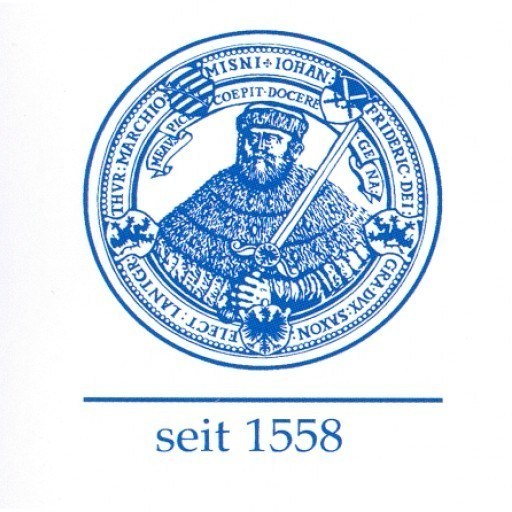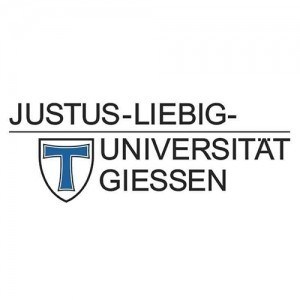Photos of university / #uni_bremen
The Master’s degree in International Ecology at the University of Bremen offers students a comprehensive and interdisciplinary education focusing on the complex interactions between ecological systems and human societies across the globe. This programme is designed to equip students with a deep understanding of environmental processes, sustainability challenges, and conservation strategies, preparing them for careers in research, environmental management, policy-making, and international cooperation. Throughout the programme, students explore key topics such as ecosystem dynamics, biodiversity, climate change, resource management, and sustainable development, using innovative methodologies and scientific approaches. The curriculum combines theoretical knowledge with practical applications, encouraging critical thinking and problem-solving skills essential for addressing pressing ecological issues.
Students have the opportunity to engage with a diverse, international community of scholars and practitioners, fostering a global perspective on ecological challenges and solutions. The programme includes coursework, fieldwork, and project work, often in collaboration with international partners and organizations, providing real-world experience in environmental assessment and policy development. Additionally, students can choose specializations within the field of ecology, allowing for tailored academic pathways aligned with their career ambitions. The university's robust research infrastructure and strong links with environmental agencies and NGOs enhance the learning experience and open avenues for internships and employment opportunities. Graduates of the Master’s in International Ecology are well-prepared for roles in scientific research, environmental consultancy, governmental agencies, and international organizations dedicated to ecological conservation and sustainable development.
Educational organisation
The programme consists of four semesters (two years) including the MSc thesis. The first semester starts with ecological basics: the main ecological concepts are covered, and also Experimental Design and Data Analysis, Earth and Soil Sciences, Molecular Ecology and an Introduction to Current Topics in Cutting Edge Ecology. Population Ecology is a compulsory course in the second semester. Specialisation is offered with individual choice of courses during the second and third semester, e.g. in Behavioural Ecology, Soil and Ecosystem Ecology, Vegetation Ecology and Conservation Biology, Ecophysiology or Sustainability Research. Excursions are also part of the curriculum as is a research project and the writing of grant proposals. Particularly during the third semester, students have the possibility to study at one of our partner universities abroad. The Master's thesis is completed during the fourth semester, either at the University of Bremen or at one of our partner universities, depending on the student's interests.A course catalogue providing detailed module descriptions can be downloaded from our website: http://www.ecology.uni-bremen.de.
Our courses consist of theoretical and practical parts, but also include assisted self-tutoring. The following methods of instruction will be used:
Lectures serve as a way to systematically convey academic knowledge as well as methodical and instrumental skills. The usage of literature, both before and after the lectures, as well as practice, is essential for comprehension.
Tutorials consist of independent work through study material, the communication of knowledge and skills and education concerning field methods.
In contrast to the other types of courses, seminars emphasise a more self-reliant kind of scientific work. Complex questions will be developed; presentations of a problem will be considered with scientific methods alternating between lecture and discussion. The goal is to improve the students' skills in using literature as well as communicating complex contexts, both orally and in writing.
Practical training is an essential part of the education, and serves to impart practical skills and abilities to solve empirical and experimental assignments both in the laboratory and under field conditions.
Field excursions give insights into the occurrences of plants and animals in the ecosystematic context, enhance students' knowledge of species and their habitats, and also introduce possible fields of professional occupation.
Colloquia include lectures held by both external readers and, less often, tutors of the Master's Programme Ecology. This provides the opportunity to get to know researchers and research projects of other universities and non-university institutes.
Assisted self-tutoring comprises independent work by students on recommended materials. They are supported individually by the instructors, for example with intensive advice regarding the focus of the presentation of a problem, with assistance in finding a solution, with the evaluation of first approaches towards a solution and with the mutual establishing of the necessary amount of learning for each student.
Study abroad unit(s)
Students enrolled at the University of Bremen are free to also take courses at the University of Oldenburg. In addition, the Biology department holds ERASMUS exchange agreements with universities in Umeå, Lund, Gothenburg, Roskilde, Trondheim, Oulu, Amsterdam amongst others. Scientific cooperation which might allow students to conduct projects or the Master's thesis abroad exists for example with universities in Canada, France, Sweden, and The Netherlands.Every research group in the Master's Programme Ecology has international contacts, which of course will benefit the students and postgraduates as well. Within the scope of the Master's programme in Ecology, a visit abroad (preferably in the third semester) is strongly recommended. For example, the student exchange via the ERASMUS programme may be used for this.
Internships
Internships take place within the university or in partner institutions.Forms of assessment
Exams are taken during the course and are as follows, depending on the module: oral or written tests, oral or poster presentations, scientific essays, reports.During the fourth semester students must complete a written Master's thesis, together with thesis presentation and defence.
Course objectives
The main goal of the Master's Programme Ecology is to provide you with a broad ecological knowledge base and to train you to become a critically-thinking scientist. Not only will you gain extensive research experience qualifying you for PhD studies and an academic career; furthermore, the acquired scientific, technical and communication skills also open up a wide array of additional opportunities.Occupational fields besides an academic career are governmental and non-governmental organisations involved in nature conservation or environmental toxicity or biological control and integrated pest management.
Language requirements
Fluency in English is required according to level C1 of the European reference scheme for language skills and must be verified by a TOEFL test (iBT 90), IELTS (6.5) or equivalent documents.If the last academic degree was obtained at a school or university where the primary language of instruction was English, language skills are accepted as sufficient.
Academic requirements
To apply for the programme, you must have a Bachelor's degree (or equivalent) in biology, ecology, environmental science or a related field, or you have 135 CP and expect to finish your Bachelor's degree before starting the Master's programme. At least 3 CP must have been gained in previous studies in ecology. Applications should include a CV, your Bachelor's degree (if you do not have a Bachelor's degree yet, include a transcript of records), a letter of motivation and a proof of proficiency in English (European C1-level or iBT-TOEFL of at least 90 points). If the last academic degree was obtained at a school where the primary language of instruction was English, language skills are accepted as sufficient.Most importantly, students should be enthusiastic about ecology. A good knowledge of basic ecological concepts is important, and not being afraid of learning modern statistics certainly helps.
Enrolment fees
Approx. 300 EUR per semesterFee includes a semester ticket covering public transport in Bremen and parts of Lower-Saxony.
Costs of living
600 EUR to 700 EUR per month to cover personal expensesJob opportunities
Option to participate in research projects or teaching as student co-workerFunding opportunities within the university
Limited access to the Deutschlandstipendium (depends on performance and social involvement, cannot be awarded at start of studies)http://www.uni-bremen.de/en/deutschlandstipendiat.html
Arrival support
Arriving students are in contact with the "Ecology" coordinator prior to their arrival in Bremen and receive directions to the coordination office.A tutoring programme ("kompass") offered by the International Office (http://www.uni-bremen.de/en/international.html) provides additional support.










